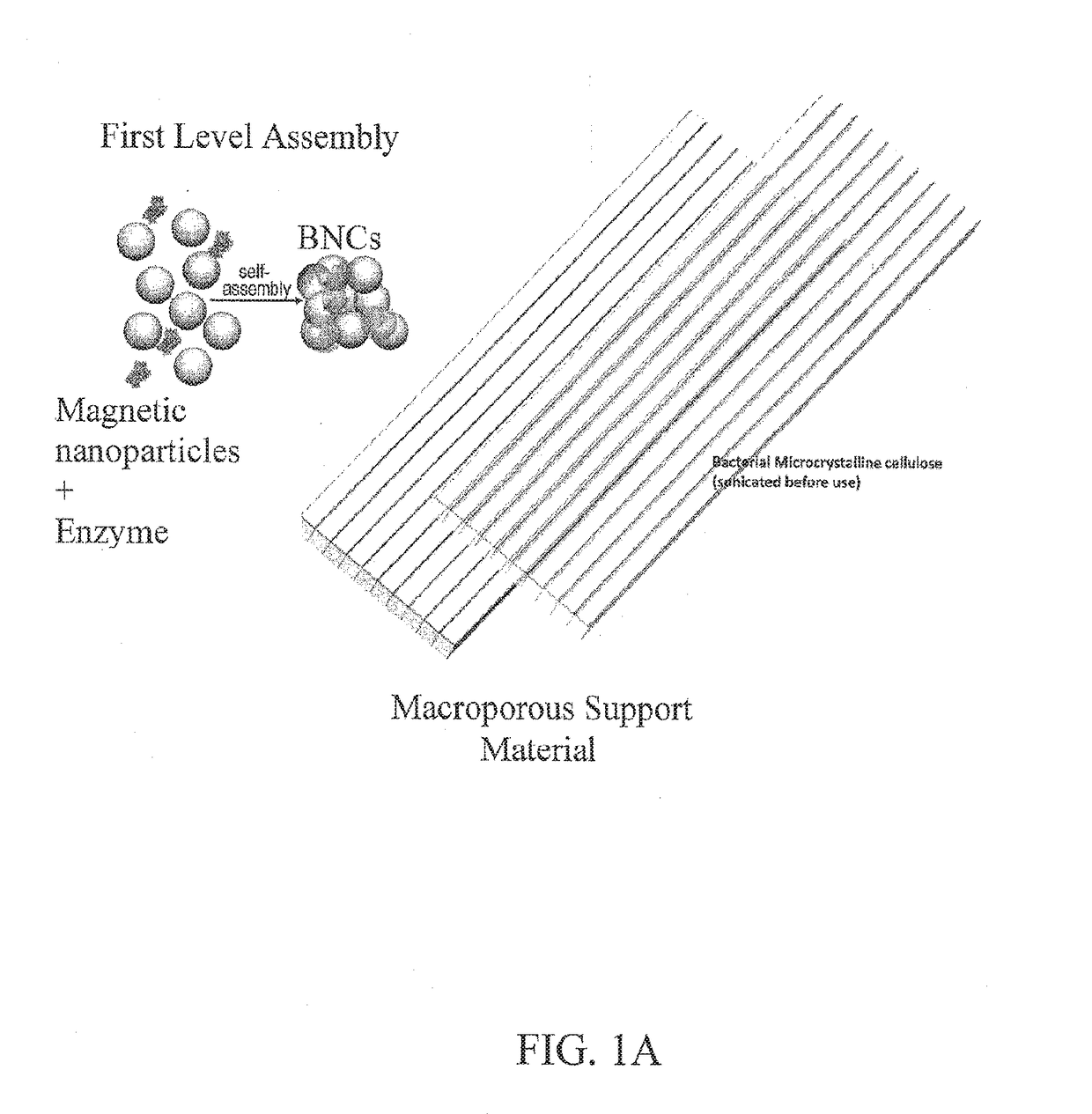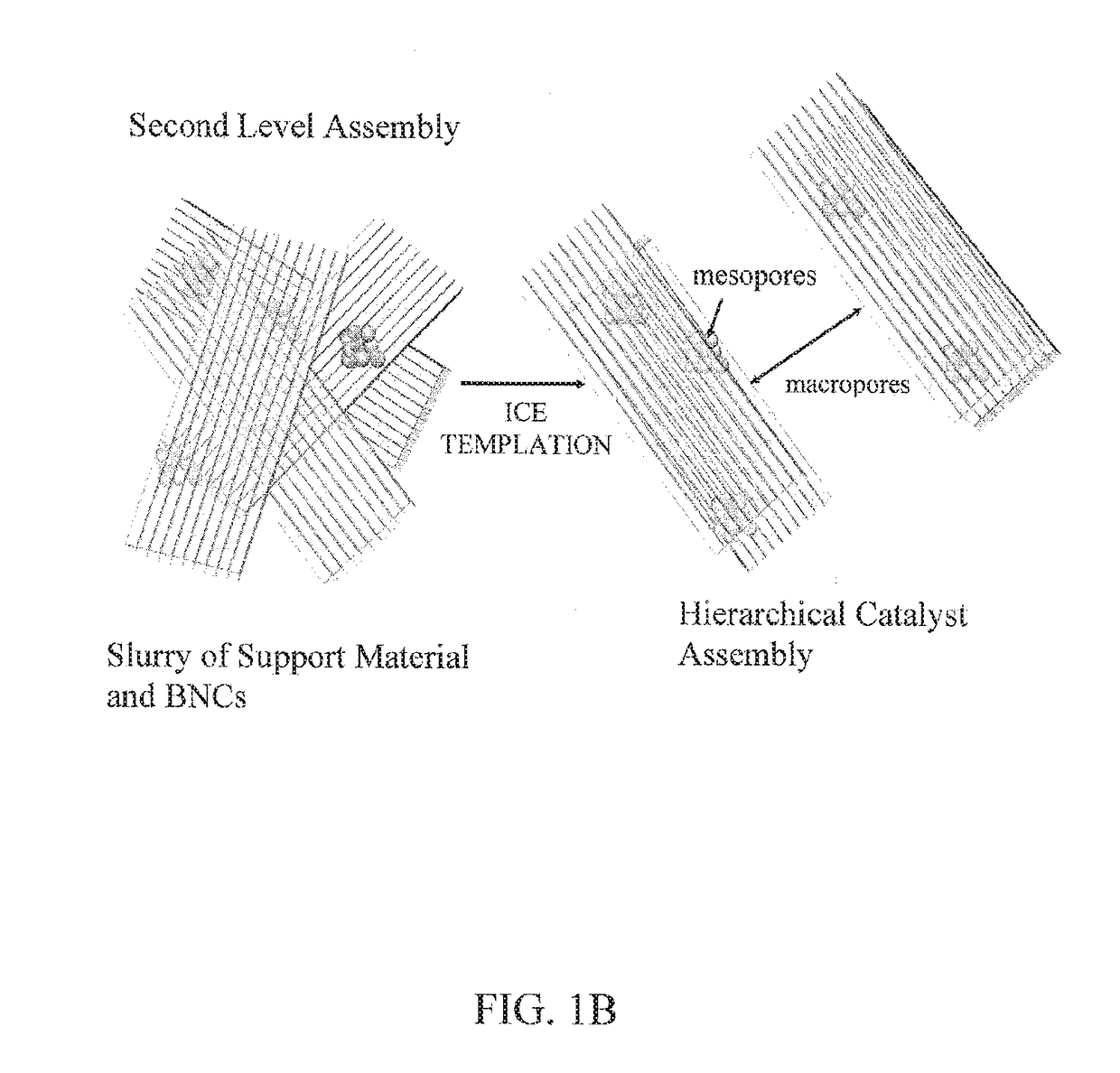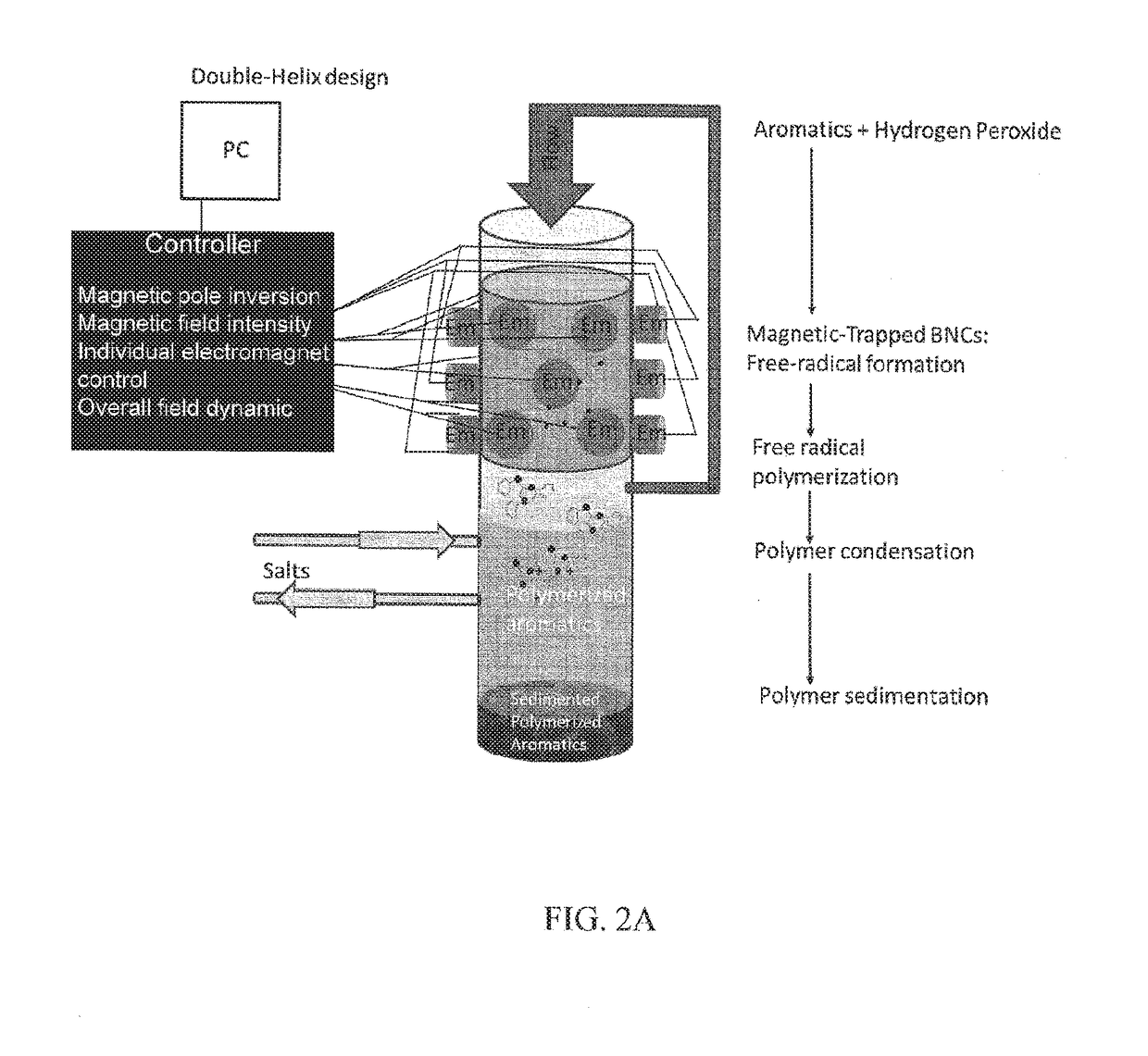Hierarchical magnetic nanoparticle-enzyme mesoporous assemblies embedded in macroporous scaffolds
a technology of magnetic nanoparticles and mesoporous assemblies, applied in the direction of catalyst activation/preparation, on/in inorganic carriers, enzymology, etc., can solve the problems of restricting their use in many processes and bioprocesses, and achieve the effects of easy capture by external forces, easy removal from reaction medium, and large siz
- Summary
- Abstract
- Description
- Claims
- Application Information
AI Technical Summary
Benefits of technology
Problems solved by technology
Method used
Image
Examples
examples
[0103]Lignin Depolymerization
[0104]Peroxidase enzymes have been amply investigated due to the potential of their oxidative activity for industrial sectors. Yet, they are particularly prone to substrate-inhibition, which has prevented development of large-scale peroxidase-based biotechnologies. Herein is demonstrated that the activity and resilience of fungal ligninolytic peroxidases can be dramatically increased in association with gold-coated magnetic nanoparticles (Au-MNPs). The assemblies have superior activity than the free enzyme systems and can be applied to the enhanced depolymerization of the lignin component of energy feedstocks. The results show that the assemblies can encompass complex enzyme systems to overcome the current physical and biochemical limitations of this family of enzymes and create a new generation of lignin catalysts. The enzyme-based catalysts exhibited a bimodal activity with two maxima between 0.1 and 1 mM and above 500 mM of H2O2. The Au-MNPs had no ac...
PUM
| Property | Measurement | Unit |
|---|---|---|
| size | aaaaa | aaaaa |
| sizes | aaaaa | aaaaa |
| sizes | aaaaa | aaaaa |
Abstract
Description
Claims
Application Information
 Login to View More
Login to View More - R&D
- Intellectual Property
- Life Sciences
- Materials
- Tech Scout
- Unparalleled Data Quality
- Higher Quality Content
- 60% Fewer Hallucinations
Browse by: Latest US Patents, China's latest patents, Technical Efficacy Thesaurus, Application Domain, Technology Topic, Popular Technical Reports.
© 2025 PatSnap. All rights reserved.Legal|Privacy policy|Modern Slavery Act Transparency Statement|Sitemap|About US| Contact US: help@patsnap.com



